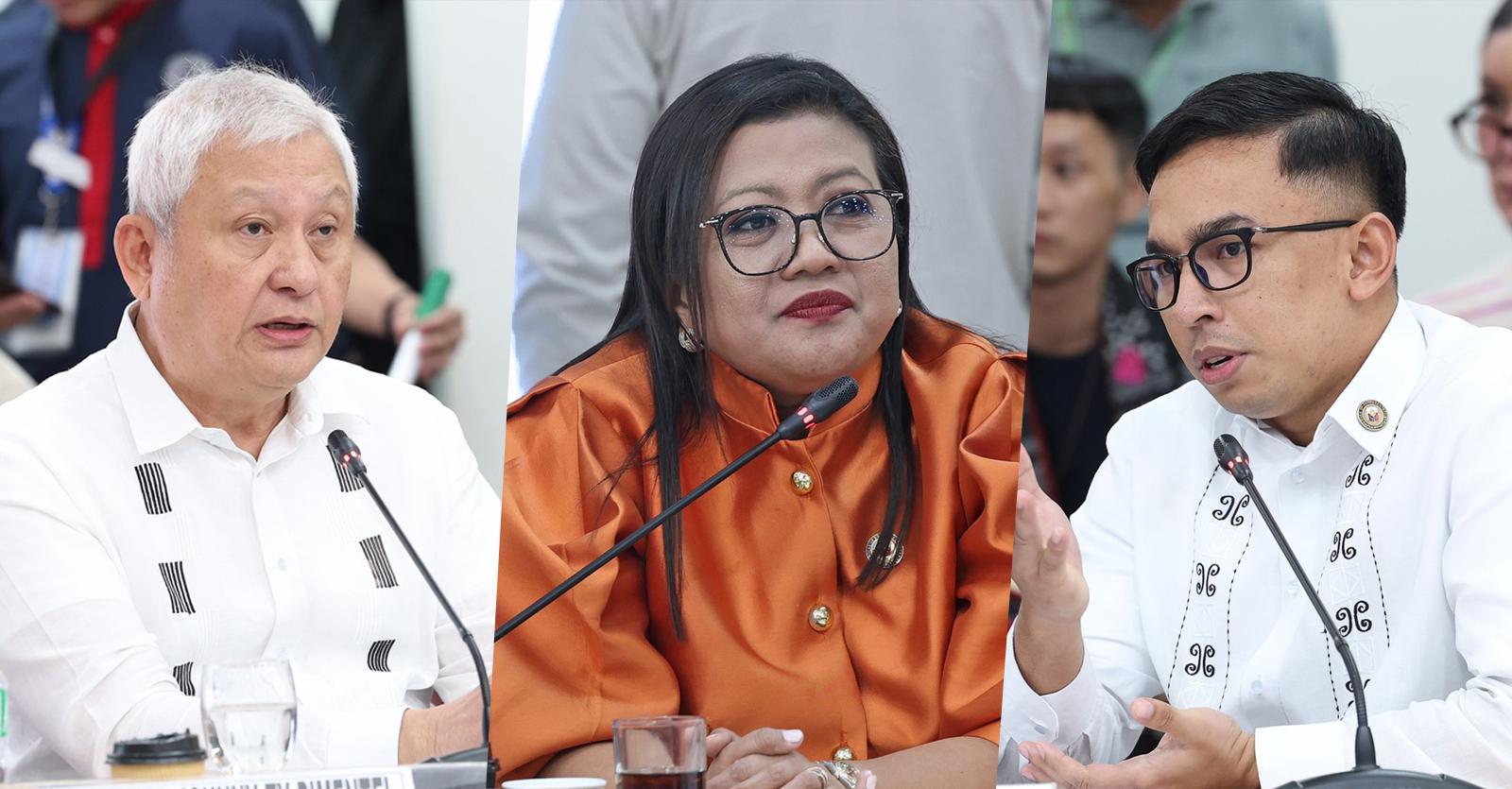
By Dean Aubrey Caratiquet
On Monday (Dec. 9), a comprehensive list of potential crimes committed by VP Sara Duterte’s trusted officials were brought into focus by several lawmakers during the seventh and final hearing of the House Committee on Good Government and Public Accountability.
This was part of the ongoing probe on the alleged misuse of confidential funds by the Office of the Vice President (OVP) and the Department of Education (DepEd).
Three lawmakers—Assistant Majority Leader and Ako Bicol Party-list Rep. Jil Bongalon, Batangas Rep. Jinky Bitrics Luistro, and Surigao del Sur Rep. Johnny Pimentel—identified offenses ranging from plunder and malversation to falsification, bribery, and perjury, highlighting the scale of corruption uncovered in the investigation.
Bongalon stressed the gravity of the crimes committed, starting with technical malversation which falls under the Revised Penal Code.
“Simply stated, it means that an accountable officer applies public funds to another purpose. Kahit public purpose pa ’yan, which is different from which they were originally appropriated for by law or ordinance. Sa madaling salita, ginamit sa iba ang pera ng taumbayan,” he explained, warning that penalties for this offense include imprisonment that may vary from six to 12 years.
According to Bongalon, the law presumes malversation if an accountable officer cannot explain where the public funds under their care went.
Probe unravels evidence pointing to possible commission of high crimes by OVP officials
It was discovered in the investigation that millions in confidential funds were handled by Special Disbursing Officers (SDOs) Gina Acosta of the OVP and Edward Fajarda of DepEd, both without clear documentation.
Acosta encashed P125 million per quarter for three quarters in 2022-2023, while Fajarda encashed P37.5 million quarterly for three quarters in 2023. Both SDOs admitted they handed the funds to Duterte’s security officers without knowing how the money was spent or who received it, directly violating Commission on Audit – Department of Budget and Management Joint Circular No. 2015-001.
Meanwhile, Luistro said that while the hearings of the panel were undertaken in aid of legislation, the lawmakers cannot turn a blind eye on the violations of law committed.
“I just want to reiterate that…our ultimate objective here in conducting this inquiry in aid of legislation is to be able to enhance existing laws, [and] come up with new ones, if the needs are determined. Nevertheless, we cannot brush aside all the abuses and infractions that we have identified during the course of our inquiry in aid of legislation.” she explained.
The Batangas lawmaker also suggested the commission of perjury by the OVP officials, which may be committed orally or in writing, citing misrepresentations during inquiries in aid of legislation as a prime example of the former.
She went on to explain the elements of written perjury, citing the certifications submitted by the SDOs to the Commission on Audit (COA) regarding the liquidation of confidential funds, especially taking note of the fact that the SDOs signed a duly-notarized certification submitted to the COA for the P125 million confidential funds when they said they did not know where the funds went.
Luistro also raised the issue of bribery, explaining its elements and pointing out that the public officials involved could be liable for accepting bribes in exchange for illegal acts. In return, those who offered bribes could also be held accountable for corruption of public officers under Article 212 of the Revised Penal Code.
The Batangas lawmaker also stressed that the officers involved can be charged with the crime of plunder if they continue to fail to explain where an estimated P612.5 million in confidential funds went.
On the other hand, Pimentel delved into the falsification of public documents, outlining its elements and penalties.
“Ang falsification po ay when public officers, tulad po ng ating mga resource persons na naimbita noong nakaraang mga hearing, take advantage of their positions and falsified documents,” he stated, citing cases of “Mary Grace Piattos” and “Kokoy Villamin” as examples.
Pimentel further explained the use of falsified documents, where public officials knowingly utilized fraudulent records to justify their actions. (with report from Mela Lesmoras/PTV News)
-iro
